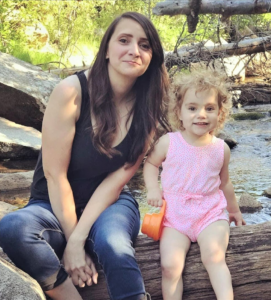 Silvana Esposito Hackett is a senior research analyst who focuses on early childhood data use and integration. As part of the Early Childhood Data Collaborative, she provides technical assistance to organizations on a variety of early childhood data topics.
Silvana Esposito Hackett is a senior research analyst who focuses on early childhood data use and integration. As part of the Early Childhood Data Collaborative, she provides technical assistance to organizations on a variety of early childhood data topics.
Her current projects include developing tools to assess early care and education access and utilization, examining early childhood data integration efforts across the nation, and supporting the work of the Maternal, Infant and Early Childhood Home Visiting Innovations Technical Assistance Center.
Can you tell us about your primary research interest(s)?
My primary research interests are the ways in which data collection and processes can inform early childhood policies, as well as the intermediate and long-term outcomes of those policies. More specifically, I’m interested in how early childhood data from different programs can be integrated and used to develop or improve comprehensive early care and education systems.
What sparked your interest in early childhood policies?
Earlier in my career, I was a program manager for a nonprofit organization that provided direct social and housing services to individuals and families in crisis, including those experiencing homelessness. I left that position to pursue a graduate degree in public policy, where I learned about a wide variety of policies and how they impact children and families. I became more aware of the importance of young children’s experiences and how those experiences can shape development—and their health and social outcomes later in life. My work on a Preschool Development Grant project and on Maternal, Infant and Early Childhood Home Visiting within a state government further cemented my view of early childhood polices as an upstream approach in a system of policies to reduce poverty and improve the lives of families.
What books or journal articles have most influenced you?
The books that have influenced me most are The Deepest Well by Nadine Burke Harris and Freakonomics by Steven Levitt and Stephen J. Dubner. The Deepest Well touches on how adverse childhood experiences influence human development and how those experiences can have effects across generations. In examining how people make decisions, the authors of Freakonomics apply economic principles to everyday situations to understand choices and behavior. For me, the book is a lesson in the unintended consequences of policies that are made with limited information.
What are your hobbies or interests outside of research?
I spend time learning about genealogy, scrapbooking, and doing large puzzles. I’m also a total failure at gardening but I keep trying! I enjoy cooking big meals for a house full of people and exploring the outdoors.
To wrap up, can you tell us a fun or interesting fact about yourself or your family?
My family and I live in a rural subdivision and have a menagerie of animals, including horses, donkeys, sheep, and goats, along with our two cats and two dogs.
Learn More
© Copyright 2025 ChildTrendsPrivacy Statement
Newsletter SignupLinkedInYouTubeBlueskyInstagram